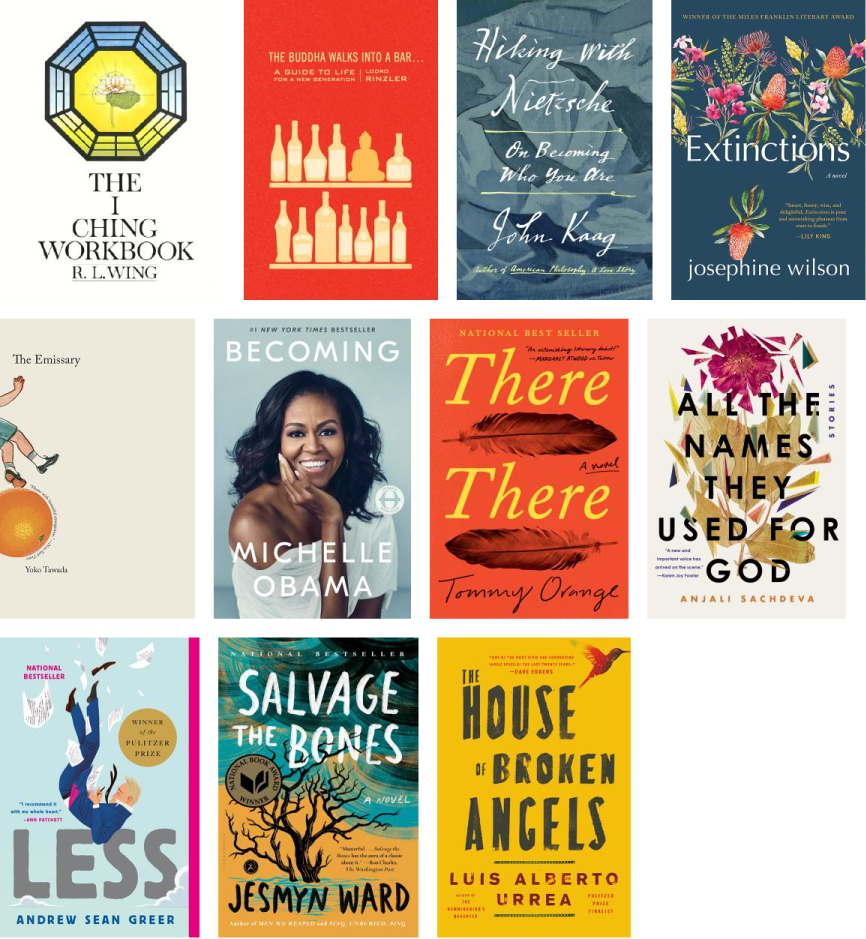Whatcha Reading, Jennie Shortridge?
Every week we ask an interesting figure what they're digging into. Have ideas who we should reach out to? Let it fly: info@seattlereviewofbooks.com. Want to read more? Check out the archives.
Jennie Shortridge has written five published novels, including Love Water Memory. Her books have been Indie Next, PNBA and Library Journal picks and bestsellers, and optioned for film here and there. She’s currently working on telling her late mother’s troubled history in some hybrid fashion of essay/biography/imagined narrative. She has no idea if it will ever get published but it is the book that is calling her to write it. Next up? Perhaps a novel reimagining the birth of America in a way that solves some of our current ills, but leads back to the place humans seem always to end up: in big trouble. When not writing, teaching, or leading Seattle7Writers, Jennie plays in a band of writers (and their talented spouses) called The Rejections.
What are you reading now?
In preparation for a new year, I’ve been digging into my well-worn copy of The I Ching Workbook by RL Wing, which encourages me to “Make a sincere attempt to meet the social responsibility of the artist: reuniting people with their reality.” I find this terribly exciting in a geeky writer way. I’ve also been freshening up on meditation with the uber-accessible The Buddha Walks Into A Bar, by Lodro Rinzler, (just a fun read), and on deep thinking with Hiking with Nietzsche, by John J Kaag. These feel like required reading for life in 2019.
What I’m reading for pleasure is the novel Extinctions by Josephine Wilson, though the title scared me. (I’m not one of those dystopian narrative lovers — come on, we’re living it!) But two of my favorite authors (Lily King and Karen Joy Fowler) sing the book's praises, and I’ve fallen in love with the grouchy protagonist, Professor Frederick Lothian, who is unhappily settled in an Australian retirement village. The extinctions are of the human variety — relationships, dignity, freedom, relevance. Sad but true and revelatory, and I feel the promise of hope in the undercurrent of the story.
What did you read last?
Recently I read The Emissary by Yoko Tawada, translated by Margaret Mitsutani, which was a gift from the amazing Karen Maeda Allman. Karen served as a judge for translations on the National Book Award committee. This was the winner, and I can see why. Though incredibly slim and about the dreaded kind of extinction, its quirky, fresh take on a disappearing world felt alternately joyful and gut punched, had me laughing at times, and stunned me with its sparing beauty.
I also flew through Becoming by Michelle Obama over the holidays, kind of a guilty-pleasure read to re-enter the sanguine era of the Obamas, and perhaps to glean some insight into what the fuck happened. She didn’t go there, but she rightfully calls out evil where evil exists.
And I have to give a shout-out to a couple of favorite reads of 2018: There There by Tommy Orange, All the Names They Used for God by Anjali Sachdeva, and Less by Andrew Sean Greer. Each grabbed me by the throat in a good way, and accomplished something I would like to in my own writing: connect viscerally with the reader.
What are you reading next?
On my list to read next, two books that have long been neglected on my pile: Salvage the Bones by Jesmyn Ward (I fell gobsmacked in love with Sing, Unburied, Sing) and The House of Broken Angels by Luis Alberto Urrea. I’ve read the opening to both, then gently closed them and put them down to read at a time when I could enter fully, with my senses wide open and ready.